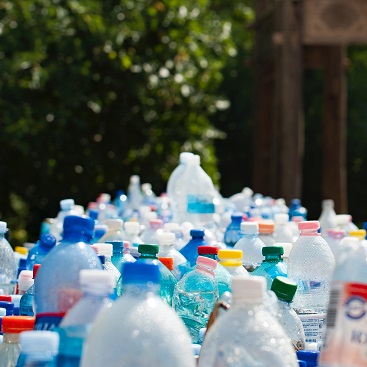 The chemical sector is facing increasingly stricter environmental regulations and the old school business model of selling petroleum-based chemicals in bulk has reached its plateau. Consumers are also becoming more involved in sustainability, demanding more green products from manufacturers.
The chemical sector is facing increasingly stricter environmental regulations and the old school business model of selling petroleum-based chemicals in bulk has reached its plateau. Consumers are also becoming more involved in sustainability, demanding more green products from manufacturers.
Plastic is a classic example to illustrate the significant environmental effects the use of petroleum-based chemicals. A UN Environmental Programme (UNEP) studied showed that more than 8 million tons of plastic are being dumped in our oceans each year, while the Alliance for a Living Ocean estimates that 33% of the total plastics manufactured are one-time use only.
There have been many sustainability initiatives in place to reduce and reuse plastics. From CTG’s innovation lens, we have been keeping track of technological innovations to reduce the environmental footprint of plastic usage. The first generation of innovations were largely focused on bio-based plastics – using biomass/renewable feedstock to produce the intermediate chemicals (e.g. polyethylene terephthalate, or PET) that are in turn used to make plastics. Most target applications at the time were focused on packaging, such as water bottles for the food and beverage industry.
More recently, the technology scene has evolved beyond bio-based plastics and expanding towards plastic alternatives that are made from renewable sources and are either recyclable or biodegradable. We have listed a couple exemplary companies that are developing plastic replacements.
Ecovative Design is developing a mycelium-based technology, a type of naturally occurring fungi that produces filaments, to produce 100% compostable packaging materials (picture cardboard boxes and Styrofoam containers that are compostable). The company has received a good amount of grant funding, including $9 million in funding from the United States Department of Defense in June 2017.
Sulapac, on the other hand, is developing a biodegradable packing material from sustainable forest residues to replace plastics. The company is positioning itself as a premium eco-product, which can potentially result in higher price points than commodity plastics. It recently received $1 million in seed funding from Lifeline Ventures, Arden Venture, and Tekes.
Finally, we are also seeing more incumbents committing to bio-based plastics. Apple is moving away from plastic packaging, and instead is using fiber-alternatives made by Stora. Ford is turning to tequila brand Jose Cuervo to explore the use of agave fiber to make car parts.
Contact: Keey Bo
Phone: +8613241200000
Tel: +8622 6099 2323
Email: keeybo@kager.cn
Add: Dongzhai Industrial Park,Dakoutun Town, Baodi District, Tianjin301801,China